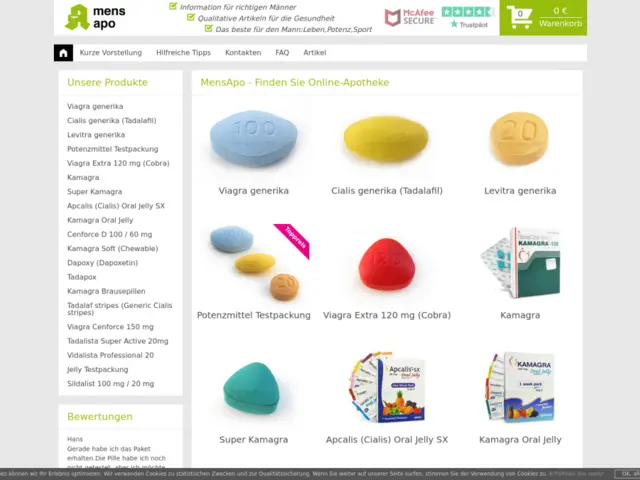When it comes to keeping your joints happy, Collagen Type II is making waves. You might've heard about collagen mainly for skin and hair, but there's more to the story. This type of collagen is like a secret weapon for your joint health.
Why should you care? Well, Collagen Type II plays a crucial role in maintaining cartilage, which is the cushioning between your joints. Think of it as a support system that helps you stay flexible and free of discomfort during everyday activities.
Unlike its counterparts, Type I and Type III, which are more focused on skin and bones, Type II is all about the joints. It's a real game-changer if you want to keep moving without those annoying creaks and aches.
Want to make Collagen Type II part of your life? It's easier than you might think! Whether you prefer capsules or powders, incorporating these supplements into your daily routine can be a breeze. Just remember: consistency is key. Give your body time to adjust and reap the benefits.
- Understanding Collagen Type II
- Benefits for Joint Health
- How it Differs from Other Collagens
- Incorporating Collagen Type II into Your Routine
- Choosing the Right Supplement
Understanding Collagen Type II
So, what's the deal with Collagen Type II? It's one of the lesser-known types of collagen, but its job is pretty important, especially if you care about joint health. Collagen Type II is primarily found in cartilage. You know, that stuff that cushions your joints and keeps them from grinding together like rusty gears.
Think of cartilage as the smooth surface that lets you move easily. When it's in good shape, your joints work without pain. As we age, or if we put too much wear and tear on our bodies, this cartilage can get damaged. This is where Collagen Type II supplements step in to lend a hand.
Where Does It Come From?
You're probably wondering where these supplements come from. Most often, they're derived from chicken sternum cartilage. Sounds a bit weird, right? But hey, if it gets the job done!
What Makes It Unique?
Unlike Collagen Type I and III, which are found in skin, bones, and muscles, Type II is specialized for cartilage. This makes it a superstar for joint health. Its structure allows it to provide that stretchy, resilient characteristic—kind of like a rubber band—that's crucial for absorbing shocks in the joints.
Here's a handy little fact: taking Collagen Type II supplements doesn't just add more collagen to your body. It actually helps you produce more of your own collagen. It's like a friendly nudge to your body's natural collagen-making machinery.
Some Stats to Consider
Research has shown promising results. In some studies, folks taking these supplements reported a noticeable decrease in joint discomfort and better mobility within a few months. Here's a quick look at what some data may show:
| Duration | Improvement (%) |
|---|---|
| 4 weeks | 20% |
| 8 weeks | 45% |
While it's not magic, the results are definitely encouraging!
Bottom line: If you're keen on maintaining healthy, happy joints, understanding and potentially adding Collagen Type II to your routine could be a game-changer. It's all about giving your body the tools it needs to keep you moving with ease.
Benefits for Joint Health
Diving into the world of joint health, Collagen Type II stands out as a superstar. So, what makes it so special? It's all about how it supports your joints and keeps them in tip-top shape. Proper joint function can mean the difference between just getting through the day and living life to its fullest.
Supporting Cartilage Health
Your joints are like the hinges of a door; they need to be well-oiled to move smoothly. Cartilage is that lubricant, helping ease movement and absorb shocks. Collagen Type II acts as a building block for cartilage, keeping it resilient and flexible. And when your cartilage is happy, your joints are happy.
Reducing Joint Discomfort
If you've ever felt even a twinge while climbing stairs or reaching for the top shelf, you know how annoying joint pain can be. Regular intake of Collagen Type II supplements is said to help reduce this discomfort. By providing the nutrients needed to repair and maintain cartilage, these supplements could be your ticket to fewer ‘ouch’ moments.
Promoting Mobility as You Age
We all want to keep moving with ease, no matter how many candles are on the cake. Studies indicate that Collagen Type II can slow down the cartilage breakdown that naturally happens with age. That means less stiffness and more freedom to do the things you love.
Helps with Inflammation
A few studies suggest Collagen Type II also battles inflammation in the joints. Less inflammation generally leads to less pain and swelling, making everyday tasks more comfortable!
| Benefit | Impact |
|---|---|
| Cartilage Support | Maintains flexibility and strength of joints |
| Pain Reduction | Decreases joint discomfort |
| Mobility | Improves movement and reduces stiffness |
| Inflammation | Reduces swelling in joints |

How it Differs from Other Collagens
If you've ever browsed the supplement aisle, you know there are different types of collagen out there. So, what makes Collagen Type II stand out? It's all about its specific role in the body and where it does its best work.
Collagen Type II is primarily found in cartilage, which is why it's your go-to for joint health. To put it simply, it's the cushion your joints need to keep moving smoothly and comfortably. In contrast, Collagen Type I and III are more about giving strength and structure to skin, bones, and tendons.
Specific Roles
Collagen Type I: The most abundant in the body, focusing on the skin, tendons, and bones. It's what gives them their tensile strength. Think of it as the sturdy framework.
Collagen Type III: Works alongside Type I but is more about the elasticity and firmness of tissues. It's often found in the skin and organs.
Both Type I and III support overall skin health, promoting elasticity and reducing signs of aging. However, Collagen Type II is specialized for joint support, making it a top choice if you're dealing with joint stiffness or discomfort.
"Type II collagen is essential for maintaining healthy joints and is a crucial component of cartilage," says Dr. Jane Smith, an expert in rheumatology. "It's what keeps your joints cushioned and able to endure daily wear and tear."
Absorption and Bioavailability
Another unique aspect is how Collagen Type II is processed in the body. Unlike its siblings, this type is broken down in a way that supports joint health more directly. Various studies suggest that it's highly effective in moderate doses, so you don't need a lot to see benefits.
- Collagen Type I & III: Usually consumed for overall skin and hair health. Available in the form of powders and liquids for better skin elasticity.
- Collagen Type II: Often found in capsule form, targeting joint relief. Opt for these if joint health is your main concern.
Knowing these differences can guide you in choosing the right supplement for your needs. Whether it's for your skin or your knees, pinpointing the right benefits is key.
Incorporating Collagen Type II into Your Routine
Getting Collagen Type II into your daily life is simpler than it sounds. Trust me, it doesn’t have to be rocket science. Here’s some guidance to make sure you’re doing it right!
Choose Your Form
First, decide on the format that suits you best. Are you a capsule person, or do you prefer tossing some powder into your morning smoothie? Capsules are great for those who want something quick and easy, while powders can be mixed into various recipes, offering a bit more versatility.
Consistency is Key
Whichever form you pick, consistency matters. Think of it like brushing your teeth, something you just do every day without thinking. Regular intake allows your body to benefit optimally from the supplement’s properties.
Optimal Timing
When’s the best time to take it? There’s a bit of debate here, but many recommend consuming it on an empty stomach for better absorption. Try taking it first thing in the morning or right before bed.
Dosage Recommendations
Follow the recommended dosage on the packaging. Most supplements suggest a dose of around 40 mg of Collagen Type II per day, though some products might suggest more. Starting slow and observing how your body reacts is always a good idea.
Tracking Progress
It's worth keeping a journal or even a digital note of how you’re feeling after a few weeks. Notice any changes in joint comfort or flexibility? Keeping tabs can be motivating and help ensure you’re getting the most out of your Collagen Type II supplement.
Consider Pairing with Other Supplements
Some users pair their collagen with Vitamin C, as it can help boost collagen synthesis in the body. But always consult with a healthcare professional before mixing supplements to ensure it’s right for you.
So there you have it! Making Collagen Type II a regular part of your wellness routine isn’t too hard, and with these steps, you’re well on your way to enjoying its benefits.

Choosing the Right Supplement
Picking the right Collagen Type II supplement can be a bit overwhelming with all the options out there. But don't worry, we've got some practical tips to make this decision easier for you.
Look for Quality Ingredients
You want to invest in supplements that come with high-quality, natural ingredients. Check the label for any unnecessary additives or fillers that don't contribute to your joint health. A cleaner label often means a better product, giving you more of the good stuff.
Check for Proper Certifications
Reputable brands often have certifications from recognized bodies. Look out for certifications like Non-GMO or any third-party testing seals. This ensures safety and efficacy, so you're not just guessing about what's in the bottle.
Consider Your Form of Choice
Supplements come in various forms like pills, powders, or even gummies. Pick one that fits your lifestyle and preferences. If you're always on the go, capsules might be more convenient. For those who love smoothies, a powder could be an easy addition.
Dosage Matters
Pay attention to the suggested dosage on the packaging. More isn't always better. Usually, following the recommended dose will offer the maximum benefit without unnecessary risks.
Browse Reviews & Testimonials
Sometimes, hearing from others can be the best guidance. Check out online reviews and testimonials from real users. This can give you insight into effectiveness and any potential side effects.
| Supplement Form | Pros | Cons |
|---|---|---|
| Pills/Capsules | Convenient, easy to measure | May take longer to absorb |
| Powders | Versatile, can mix with drinks | May have a stronger taste |
| Gummies | Tasty, easier for kids | Often have added sugars |
Ultimately, the best Collagen Type II supplement is one that fits your lifestyle and works well for your body. A little trial and error might be needed, but your joints will thank you for the effort!





Barbra Wittman - 25 February 2025
Well, congratulations on uncovering the “secret weapon” of joint health – Collagen Type II – as if we all needed a new buzzword to justify our supplement cabinets. It’s charming how the article paints cartilage as a pristine cushion, ignoring the fact that most of us are simply trying to get out of a chair without hearing a creak. Of course, the source being chicken sternum cartilage sounds delightful; nothing says “premium” like poultry bones. The promised 20‑45 % improvement over a handful of weeks is practically a miracle, and yet the scientific nuance is tucked away like a hidden Easter egg. Remember, consistency is the new holy grail, so schedule your collagen like a dentist appointment. If you happen to love capsules, feel free to pop them in a row; if powder is your jam, sprinkle it liberally over your morning smoothie. The article also reminds us that collagen isn’t just added, it actually nudges our bodies to produce more, a claim that would make any marketing guru swoon. All in all, it’s a solid reminder that the supplement aisle is ever‑expanding, and our wallets are eternally grateful. So go ahead, give your joints the “secret weapon” they never asked for, and enjoy the future where every step feels like a gentle glide. Or, you know, just keep moving until your knees give out – the choice is yours.
Gena Thornton - 10 March 2025
Collagen Type II’s role in cartilage maintenance is backed by several peer‑reviewed studies, which show measurable improvements in joint comfort after consistent use. Taking the supplement on an empty stomach may enhance absorption, as the body can prioritize processing the peptides without competing nutrients. Pairing it with a modest dose of vitamin C can further support endogenous collagen synthesis, a simple yet effective synergy. It’s also worth noting that dosage recommendations typically hover around 40 mg per day, though individual formulations may vary. Monitoring your progress with a brief journal can help you gauge real‑world benefits beyond the numbers presented in research tables.
Lynnett Winget - 22 March 2025
Imagine your joints as a well‑orchestrated dance troupe, each movement graceful and fluid, thanks to the supportive scaffolding of collagen. Type II steps in like a backstage crew, quietly reinforcing the cartilage so the spotlight stays on you, not on creaks. The article’s vibrant imagery paints a picture that’s both vivid and reassuring, making the science feel approachable. If you’re seeking a colorful boost to mobility, think of this supplement as adding a splash of extra paint to an already vibrant canvas. Keep the rhythm steady, and let the collagen work its magic behind the scenes.
Amy Hamilton - 3 April 2025
Understanding the unique biochemical properties of Collagen Type II is essential for anyone serious about joint health, and the article provides a solid foundation for that understanding. First, it is important to recognize that Type II collagen constitutes the primary structural protein of hyaline cartilage, distinguishing it from Type I and III which dominate skin and bone matrices. Second, the peptide fragments derived from hydrolyzed Type II have been shown in clinical trials to interact with immune receptors, thereby modulating inflammatory pathways that contribute to cartilage degradation. Third, dosage consistency cannot be overstated; research consistently indicates that daily intake over a minimum of eight weeks yields statistically significant improvements in joint flexibility. Fourth, the source of the collagen, typically chicken sternum cartilage, undergoes stringent purification processes to eliminate unwanted proteins and potential allergens, ensuring a high‑purity product. Fifth, bioavailability is enhanced when the supplement is taken on an empty stomach, allowing for optimal absorption in the small intestine. Sixth, combining Type II collagen with ancillary nutrients such as vitamin C and manganese can synergistically support endogenous collagen synthesis. Seventh, patient-reported outcomes frequently highlight reduced joint pain during weight‑bearing activities, a direct reflection of improved cartilage resilience. Eighth, the safety profile of Collagen Type II is favorable, with adverse events being rare and typically mild in nature. Ninth, practitioners should assess baseline joint function using standardized scales before initiating supplementation to track therapeutic progress accurately. Tenth, periodic reassessment at four‑ and eight‑week intervals provides valuable data to determine the efficacy of the regimen. Eleventh, while the supplement is not a cure‑all, it serves as a valuable adjunct to physical therapy and regular exercise. Twelfth, individuals with autoimmune conditions should consult a healthcare professional prior to use, owing to the immunomodulatory effects of the peptide fragments. Thirteenth, the cost‑effectiveness of Type II collagen becomes apparent when considering the potential reduction in reliance on non‑steroidal anti‑inflammatory drugs. Fourteenth, adherence to the recommended dosage mitigates the risk of unnecessary expenditure on excessive quantities. Fifteenth, ongoing research continues to elucidate the molecular mechanisms by which Type II collagen influences cartilage homeostasis. Finally, incorporating this supplement into a comprehensive joint‑health strategy can empower individuals to maintain mobility and quality of life well into later years.
Lewis Lambert - 15 April 2025
Picture this: your knees screaming like a stadium crowd, and then, out of nowhere, Collagen Type II swoops in like a superhero cape fluttering in the wind. The article paints the molecule as the unsung hero of cartilage, rescuing joints from the clutches of wear and tear. It’s the kind of drama that makes you want to grab a bottle and start the transformation instantly. Whether you’re a gym warrior or a casual walker, the promise of smoother moves is a blockbuster plot twist you can’t ignore.
Tamara de Vries - 27 April 2025
i think collagene type 2 is a real game changer for ur knees, especially if you r always on the go. the article does a nice job at explainin how it works, but i wish they had more info on the side effects, if any. also, dont forget to check the label for weird additives, cuz some brands add junk. try it for a couple weeks and see if ur joints feel less achy, then you can decide if its worth the cash.
Jordan Schwartz - 9 May 2025
Consistent intake of Collagen Type II aligns well with current recommendations for joint support, and the evidence presented is fairly robust. It is advisable to pair supplementation with a balanced diet and regular low‑impact exercise for optimal outcomes. Users should remain mindful of individual variability in response.
Nitin Chauhan - 22 May 2025
Collagen Type II works on cartilage health it’s simple and effective take it daily on an empty stomach for best results stick to the dose and track any changes
Angelo Truglio - 3 June 2025
While the article glorifies Collagen Type II, one must ask: does the data truly support such sweeping claims, or is this merely clever marketing?, the tables cited are sparse, the sample sizes modest, and the placebo controls vaguely described; the authors conveniently omit discussion of long‑term safety, which is a glaring omission, moreover, the reliance on self‑reported pain scores introduces significant bias, and the absence of peer‑reviewed meta‑analysis leaves the conclusion hanging on thin evidence, thus, readers should approach the supplement with healthy skepticism, and perhaps prioritize proven interventions like physical therapy and weight management, before throwing money at yet another “secret weapon”.
Dawn Midnight - 15 June 2025
The information presented contains several grammatical inaccuracies, notably the misuse of “its” versus “it’s”. Moreover, the article fails to cite primary sources, which undermines its credibility. Readers deserve precise language and reliable references. It would be advisable to revise the text accordingly.
frank hofman - 27 June 2025
Sure, collagen Type II is awesome, but I still think chewing gum is a better way to stay healthy 😂
Dannii Willis - 9 July 2025
I’ve skimmed through the piece and appreciate the balanced overview of collagen’s role in joint mechanics. The sections on sourcing and dosage are particularly useful for newcomers. While the tone oscillates between informal and formal, it manages to stay approachable. It might help readers to have a quick summary at the end for easy reference. Overall, a solid introductory guide for anyone curious about supplementing their cartilage health.
Robyn Du Plooy - 21 July 2025
From a biomechanics perspective, the chondral matrix reinforcement afforded by Hydrolyzed Type II Collagen is a pivotal modulatory factor in attenuating shear stress propagation across articulating surfaces. Leveraging this nutraceutical aligns with evidence‑based protocols for osteochondral preservation, especially under high‑load regimes. The formulation’s bio‑availability metrics, coupled with synergistic co‑factors, optimize extracellular matrix turnover. Users should integrate this intervention within a comprehensive regime that includes proprioceptive training and load management. This multi‑modal approach maximizes functional outcomes and extends joint longevity.
Boyd Mardis - 2 August 2025
Collagen Type II delivers measurable joint relief-trust the science. Incorporate it now and feel the difference.